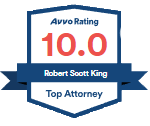
New York Car Insurance Laws
New York law requires that all vehicles that have been registered within the state to be protected by liability insurance. In addition to this requirement, New York is one of the handful of states in the country that has a “no-fault” standard for car accidents. A no-fault insurance system requires insurance companies to pay out a certain amount of benefits to their policyholders that have been in an accident, no matter who was deemed liable for it.
The benefits of a no-fault car insurance standard include generally faster payment processes and less headaches when trying to collect some benefits. The downsides of such a system are that responsible drivers can have their insurance premiums rise solely due to the negligence of other drivers and pursuing compensation in civil courts is limited. You can only bring the other driver to court for pain-and-suffering costs, not medical expenses or wage loss damages.
Pain-and-suffering costs are emotional damages triggered by:
Permanent or temporary disability due to injury
Lifelong disfigurement due to accident
Do you have additional questions about New York’s car insurance laws? Rather than sort through the complicated rules and guidelines yourself, allow Rochester Car Accident Attorney Robert King to help you.
Coverage and SR-22 Requirements in New York
There are three minimum insurance coverage requirements:
$25,000 per person for bodily injuries will be provided.
A total of $50,000 will be provided for all bodily injuries.
$10,000 must be provided for any property damage (including vehicles).
It is worth noting that once the $50,000 threshold for bodily injuries are met, anyone who has yet to be compensated by the insurance companies involved will be able to sue the liable driver for damages (you may have to file a lawsuit anyway if the driver has little or no insurance coverage). This can be problematic as insurance benefits are distributed on a first-come, first-serve basis, not necessarily on necessity. If you were in a muti-car accident where you and several other people were injured and you do not notify your insurance quickly, you may be left without coverage.
Additionally, New York does not require you to obtain an SR-22 form after being arrested and convicted of driving while intoxicated (DWI/DUI). An SR-22 form indicates that your insurance company will continue to provide you coverage, despite the DUI conviction; it is usually filed by an insurer with the Department of Motor Vehicles (DMV). The only time you would need an SR-22 in New York would be if you had one from another state and then moved to New York.
Factors That Can Raise Insurance Premiums
Since your insurance premiums may increase without you actually ever causing an accident, it is worth knowing ahead of time what can cause them to spike. In New York, car insurance companies are permitted to review you based on a variety of factors and adjust your premium from there.
Your insurance premium may escalate if you:
Have DUIs or prior accidents on your driving record.
Have a lower credit score.
Drive frequently or across long distances.
Are under the age of 25.
Are a male.
Own an expensive or sports car.
Comparative Negligence in Insurance Claims
In New York State legislation, personal injury cases and the compensation ultimately rewarded to a plaintiff are curbed by a rule known as comparative negligence. This rule states that if the plaintiff is a liable for their own injuries up to a certain percent, they can only recover that same percentage of recoveries, at maximum. The less the defendant is found to be liable for an accident or injury, the less they will need to pay out.
For example: You sue someone for $20,000 in damages after being rear-ended and suffering back pain. The judge, or jurors, determine that you do deserve compensation from the defendant but that you were 20% responsible for not having working taillights on your vehicle, making it difficult for them to realize you were stopping. If you had asked for all $20,000 in rewarded recoveries, you would get 20% less than that, or $16,000.
Comparative negligence rules can become a problem when your car insurance provider attempts to enforce it on your claim, which is something they should not be able to do. Only courtrooms need to follow comparative negligence requirements, and a car accident claim is not the same as a car accident lawsuit.
If your insurance provider or the insurance carrier of the other driver has stated that your settlement amount will be reduced due to comparative negligence, you are free to challenge that decision. Do not sign any sort of agreement or accept any initial offers if you think they are trying to find ways to short you.
Honest Representation, Proven Experience
Make no mistake – there are valid reasons your insurance premiums would rise. The issue is that there are so many cases where your premium should not have raised after an accident at all, and you must be aware that something illegitimate is going on. If you believe that your insurance premiums have unfairly spiked due to a car accident someone else caused in New York, and you think you have grounds to pursue a civil lawsuit, contact Attorney Robert King today. As experienced personal injury lawyers in Rochester, we can help you take steps toward securing the financial compensation you need.
Case Results
Our Results Speak for Themselves.
Auto Injury
Settlement - $112,500
Head-On Collision
Settlement - $100,000
Car Accident
Settlement - $105,000
OUR COMMITMENT TO EXCELLENCE





